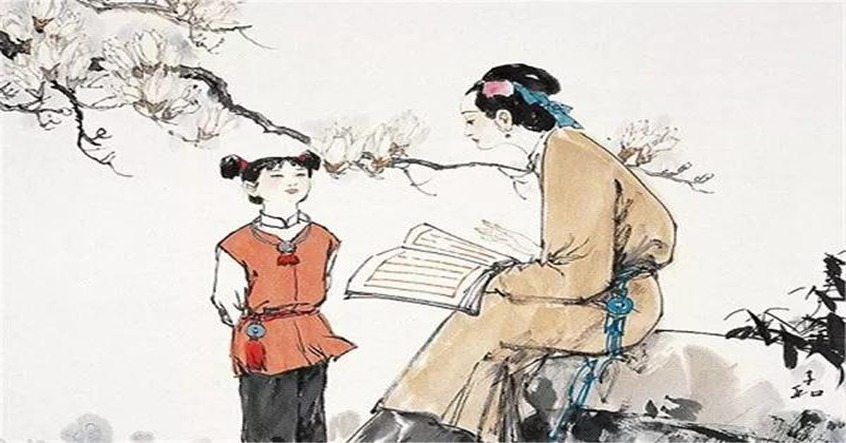In the “Tam Tự Kinh,” there is a sentence: “Educating children is not the fault of parents.” The ancient philosophers noticed that the primary responsibility for educating children lies with the parents. The prosperity or decline of a family depends on whether the future generation has prospects or not.
The most important factor in shaping a person’s character is the parents. If we want children to develop into valuable individuals, parents need to be exemplary role models. All actions, words, and attitudes of parents have a powerful influence on the souls of their children.
To ensure that children continue to develop well, we need to pay attention to every small detail. For families who violate these principles, especially prohibitions, we must be cautious and meticulous.
1. As parents live, so will the children
If a person is disrespectful to their parents, treats their relatives harshly, then their children are unlikely to succeed and become obedient. Those who do not respect teachers and morals cannot expect a positive future.
There is an interesting fable:
In a three-generation family, grandparents and grandchildren live together under one roof. The grandmother, who is old and unable to walk, becomes a burden for the young parents. One night, they decide to call their son and together, they put the grandmother in a large bamboo basket, and carry her up the mountain.
When they leave the grandmother behind and return, the son says, “Mom and Dad, we have left grandma on the mountain, let’s not throw away this big basket.”
Curious, the parents ask their child, “Why do you want to bring the basket home?”
The child replies, “When you are old, I will use this big basket to carry you up the mountain.”

Through this story, we see that children often imitate their parents’ behavior. If you are kind to the elderly, your children will follow suit and become obedient, polite, and respectful. Conversely, if parents lack compassion and do not have love for their relatives, how can they expect to raise obedient children?
There is a saying: “If today a mother does not take care of her own mother, then tomorrow the child will not come to take care of the mother.” This reflects acceptance and setting oneself as a role model. Only by facing right and wrong can a child develop the ability to distinguish between good and evil.
2. Not teaching children to respect teachers
Except for parents, teachers are the ones who bring hope to children.
Those with good morals often succeed in their careers and have a bright future. These individuals need to appreciate and respect their teachers, who have contributed to their development. On the other hand, unsuccessful and ignorant people often have a disdainful view and a lack of gratitude when it comes to teachers.
For children, the majority of their time at school is associated with teachers and friends. If parents do not respect teachers, it is difficult for children to develop respect for teachers, and they will be influenced by negative “education.”

If we do not guide and educate children on the path to maturity, they will find it difficult to become good individuals. A teacher shares, “Students who are respectful to their teachers and obedient to their parents have the ability to transform well. On the contrary, if they neglect their parents and teachers, they may fall into a ‘serious illness’ that is difficult to remedy.”
All changes start with small things. Without respecting teachers and teaching children, how can we expect a prosperous future for our children?
Good qualities are not born, but they are formed through every word and action of parents. The phrase “If you know how to bring happiness to your loved ones, live responsibly and control your emotions, then your children will imitate you” is evidence of the strong influence of parents’ behavior and soul.
No matter how prestigious a school is, it cannot compare to the teachings and actions of parents towards their children. To educate children well, the most important thing is to educate ourselves first.
Learning Tips for Parents: 12 Japanese Techniques to Use with Your Children
Discover the 12 principles of teaching children in the traditional Japanese way that parents can learn with Dien May XANH! By instilling these principles when your children are young, you can ensure that they grow up to be obedient, smart and polite, the hallmarks of a successful education in Japan.
“Creating Lasting Memories: 10 Tips for Strengthening the Father-Child Bond”
Are you looking for effective ways to create a strong and close relationship with your child? If so, this article is for you! Find out 10 creative ways to nurture the father-child bond and make the relationship between you and your child more meaningful. These simple tips can help you create a special bond with your child and build strong emotional ties.





































